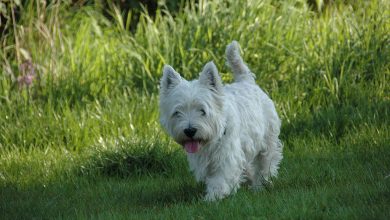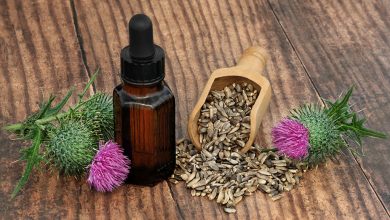Natural ingredients make a huge difference to the wellbeing of canines.
I don’t generally use a single herb on its own but tend to prescribe a formulation that usually consists of four or five herbs for each individual case I see. This takes into account the animal’s unique needs and any potential contraindications for particular herbs. Here, you’ll notice that I do not supply any information on brands or doses, and this is because Westie owners need to discuss any of their dog’s health issues with their vet first.
For those with an interest in herbal medicine, the British Association of Veterinary Herbalists website: herbalvets.org.uk may be useful for those wanting advice on specific concerns.
Ashwagandha (Withania somnifera)
Parts used: root, leaf and whole plant
Potential actions: an adaptogen (increases the body’s response to all stressors and promotes normal physiologic function), nervine improving the functions of the nervous system, reduces nervous tension, anti-inflammatory and pain relief.
Bilberry (Vaccinium myrtillus)
Parts used: ripe fruit and leaves
Potential actions: a potent antioxidant, anti-inflammatory and vasoprotective (protects the integrity of the blood vessels).
Calendula (Calendula offinialis)
Parts used: flowers
Potential actions: antiseptic, assists detoxification, anti-inflammatory, reduces/relieves smooth muscle pain, and healing.
Chamomile (Matricaria recutita)
Parts used: dried flowering heads
Potential actions: relieves flatulence and soothes intestinal spasm and pain, reduces nervous tension, tones down allergic responses, anti-inflammatory, healing.
Dandelion (Taraxacum officinale)
Parts used: roots and leaves
Potential actions: tonic for the liver and digestive system
Green tea (Camellia sinensis) nb use decaffeinated
Parts used: young leaves
Potential actions: antioxidant, possibly anti-cancer
Marshmallow (Althaea officinalis)
Parts used: roots
Potential actions: soothing effect on all mucous membranes, healing
Milk thistle (Silybum marianum)
Parts used: seeds
Potential actions: liver support/protection, soothing effect on all mucous membranes, antioxidant
Nettle (Urtica dioica)
Parts used: leaf, root, seed
Potential actions: anti-inflammatory, diuretic, reduces allergic responses
Turmeric (Curcuma longa)
Parts used: dried rhizome
Potential actions: anti-inflammatory, antioxidant, liver protectant, possible anti-cancer
Shelley Doxey is a veterinary surgeon who runs her own practice, Holistic Veterinary Care. For more information, visit: www.shelleydoxey.co.uk






